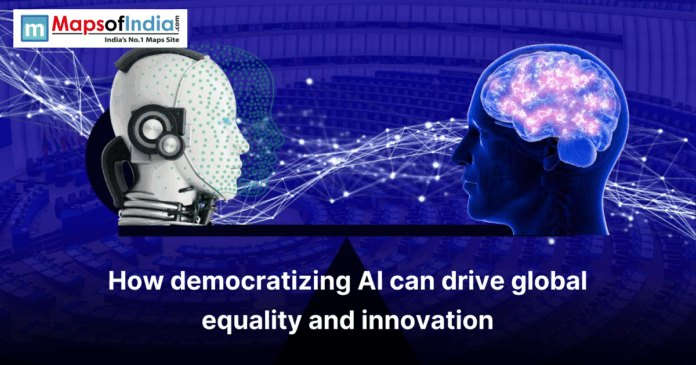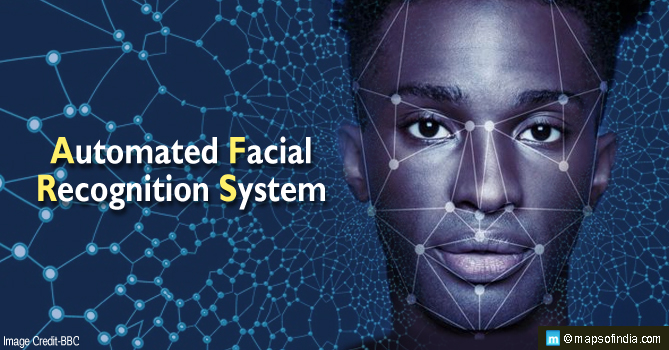The democratization of AI has made AI accessible to everyone. With the proper use of AI, it can empower individuals, communities, and nations. Open-source tools and affordable tech have spread the benefits of AI to everyone. With this, equality is fostered by reducing disparities. This can lead to innovation in underserved regions and make a positive change. According to a World Economic Forum report, it has been predicted that AI may add $15.7 trillion to global GDP. Developing countries are gaining the most from it. Yet challenges like bias and access gaps still exist.
Expanding Access and Bridging the Digital Divide
The democratization of AI helps to remove many barriers that exist in our society. Many open-source AI platforms are available for free that help everyone get access to the knowledge. A Forbes article says that 60% of developers use open source tools for innovations. Low-cost computing like Google Colab enables experimentation. The Aadhaar system in India uses AI for 1.3 billion identities. According to the reports, these free source AI models reduce the 30% digital divide. Africa’s AI literacy programs train 150000 youth each year. This boosts inclusion. Women in tech are growing by 25% with proper accessible AI. A recent study conducted by McKinsey shows that AI helped a 10% GDP rise in low-income nations. Rural areas get access to AI via mobile apps. These levels provide opportunities. Democratization of AI will help to uplift marginalized communities, which lack access. It drives equitable innovation globally.
Fueling Economic Growth in Developing Regions
The democratization of AI is also helping boost the economy of many nations. Many small-scale businesses use AI for marketing purposes. According to the Lumikai report, India’s AI startups grew 35% with the use of open source AI. Kenya’s AI sector added 50000 jobs in one year. According to the recent OECD article, it has been observed that AI creates 97 million jobs globally each year. Farmers in India use AI apps like Kisan AI to be up-to-date with current events happening around them. With the use of these apps, they have increased yields by 20%. With the use of open-source AI, we can cut costs for SMEs. According to the recent MIT Technology Review, it saves 15% in operations. Data annotation jobs employ millions in Asia. AI has given a boost to local innovation. It reduces economic inequality. Developing regions thrive with accessible tools.
Transforming Education and Skill Development
AI has made the learning process inclusive for everyone. Many free learning platforms like Coursera use AI to tailor free courses. According to the recent UNESCO report, AI boosts literacy by 12% in rural areas. Many free coaching follow an AI model to coach students in India’s Byju’s app, which educates 100 million students. These are AI-driven lessons. Africa’s coding bootcamps train 200000 youth. According to the report of the World Economic Forum, AI skills demand rose 30%. Open AI tools teach coding via mobile. With the help of AI, the learning process has become 40% faster. Women and minorities access tech education. A McKinsey study says this cuts skill gaps by 25%. Democratized AI empowers learners. It fosters innovation across fields.
Promoting Ethical AI and Reducing Bias
With the democratization of AI, we should ensure that the proper and safe use of AI is also happening. AI might contain an algorithmic bias. To tackle that, the developing team should be an inclusive team that cuts bias by 35%. Open-source models like Hugging Face allow global scrutiny. India’s AI ethics policies are more focused on fairness. Bias-free AI improves trust in the source. Community-driven projects audit datasets. An ACM study shows that 50% fewer errors are found in the collaborative models. Ethical AI gives the push to safe innovation. The ethics related to AI should be discussed on the global stage. Bias in hiring AI dropped 20% with open tools. Democratization of AI makes the AI align with human values. It promotes fairness across the world.
Revolutionizing Healthcare Access
The democratization of AI has transformed the healthcare industry we know today. Diagnosing diseases and symptoms using AI has become available in remote areas of the world. Many healthcare-related AI, like India’s quara.ai, have detected TB in 3 million scans yearly. According to the study conducted by The Lancet, it has been found that AI cuts diagnosis time by 40%. Many apps are developed in the healthcare sector, like mHealth apps that use AI for disease tracking. A WHO report notes that this application gives 18% better outcomes. Open-source tools like PathAI help with pathology. According to the Health Affairs article, AI reduces mortality by 15%. Rural clinics use AI with the help of mobiles. Democratized AI makes healthcare available and easy for everyone. It drives medical innovation across the globe.
Advancing Environmental Sustainability
The AI can be used to tackle current challenges like climate change when democratized. Farmers use AI tools for sustainable practices. AI-based applications are helping farmers on many different levels. India’s Plantix app helps 2 million local farmers. According to the Nature Climate Change article, the use of an AI-based app boosts yields by 22%. Open AI models are used to monitor deforestation. Brazil’s AI tracks Amazon fires instantly. A UN report says that this application gives results with 25% better accuracy. AI optimizes renewable energy grids. Community projects map pollution with AI. A World Bank article highlights 30% efficiency gains. Democratized AI is also helping to achieve the goal of green innovation. It promotes equality in environmental efforts.
Addressing Challenges and Ethical Concerns
The democratization of AI is facing many obstacles. The concern related to data privacy is growing with AI access. There are many misuse of AI cases seen across the world. Bias is there in untrained AI models. According to the recent MIT study 30% of AI outputs show cultural bias. Rural areas don’t have a proper internet connection for AI tools. A UNESCO report notes 2.7 billion offline globally. Job displacement has affected 80 million people in recent years. Ethical frameworks are important. An OECD article calls for global AI governance. Training an AI model properly reduces bias by 15%. Addressing these ensures equitable innovation.
Conclusion
Democratizing AI can help to achieve equality and innovation. This can also help to break access barriers. Economic growth can be seen in underserved regions. Education becomes inclusive to everyone. Ethical AI reduces cultural bias in AI. Healthcare outcomes are also improving with the use of AI. Sustainability efforts strengthen. Challenges like privacy are still there. In recent years, AI has empowered all. A recent WEF report predicts 97 million new jobs will be produced via AI. Democratized AI builds a fairer world.





